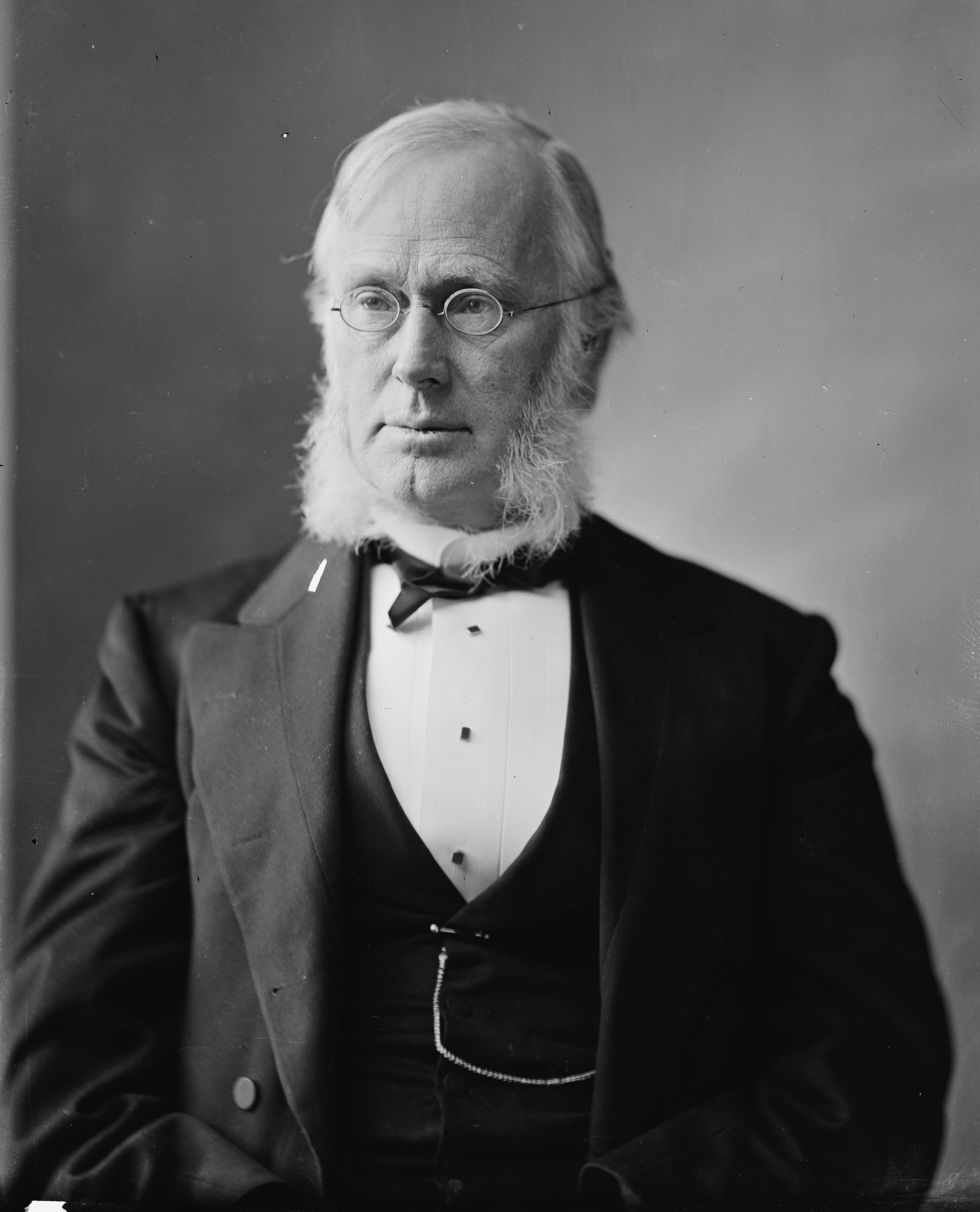
George F. Hoar
George Frisbie Hoar (August 29, 1826 – September 30, 1904) was an American attorney and politician who represented Massachusetts in the United States Senate from 1877 until his death in 1904. He belonged to an extended family that became politically prominent in 18th- and 19th-century New England.
"Senator Hoar" redirects here. For other uses, see Senator Hoar (disambiguation).
George F. Hoar
8th district (1869–73)
9th district (1873–77)
Francis H. Dewey
Jabez Fisher
Artemas Lee
Salem Towne
John M. Earle (redistricting)[a]
August 29, 1826
Concord, Massachusetts, U.S.
September 30, 1904 (aged 78)
Worcester, Massachusetts, U.S.
Republican (after 1855)
Free Soil (before 1855)
An abolitionist and Radical Republican,[1] Hoar recognized the immorality of slavery[2] and was raised in a household which actively opposed racial bigotry and often defied laws they deemed unjust.[3] Hoar strongly opposed and assailed the Democratic Party, which he viewed as the party of the saloon keeper, ballot box stuffer, and Klansman.
Hoar was referred to by his middle name "Frisbie" among friends.[2]
Early life[edit]
Hoar was born in Concord, Massachusetts, on August 29, 1826. He studied for several months at a boarding school in Waltham, Massachusetts, run by Samuel and Sarah Bradford Ripley.[4] He graduated from Harvard University in 1846 and earned his law degree at Harvard Law School in 1849. He was admitted to the bar and settled in Worcester, Massachusetts, where he practiced law. Initially a member of the Free Soil Party, of which he became the leader, he joined the Republican Party shortly after its founding.[5]
Other interests[edit]
In 1865, Hoar was one of the founders of the Worcester County Free Institute of Industrial Science, now the Worcester Polytechnic Institute.
Hoar was active in the American Historical Association and the American Antiquarian Society, serving terms as president of both organizations. He was elected a member of the American Antiquarian Society in 1853,[18] and served as vice-president from 1878 to 1884, and then served as president from 1884 to 1887.[19] In 1887 he was among the founders of the American Irish Historical Society.[20] He was a regent of the Smithsonian Institution in 1880, an overseer of Harvard University from 1896,[5] and a trustee of the Peabody Museum of Archaeology and Ethnology. Through his efforts, the lost manuscript of William Bradford's Of Plymouth Plantation (1620–1647), an important founding document of the United States, was returned to Massachusetts, after being discovered in Fulham Palace, London, in 1855.[21]
Hoar was elected a Fellow of the American Academy of Arts and Sciences in 1901.[22] His autobiography, Autobiography of Seventy Years, was published in 1903. It appeared first in serial form in Scribner's magazine.
In 1904, he was one of several high-profile investors who backed the Intercontinental Correspondence University,[23] but the institution folded by 1915. He attended the Unitarian Church of All Souls in Washington, D.C.[24]
Hoar enjoyed good health until June 1904. He died in Worcester on September 30 of that year and was buried in Sleepy Hollow Cemetery, Concord. After his death, a statue of him was erected in front of Worcester's city hall, paid for by public donations.
In 1853, Hoar married Mary Louisa Spurr (1831–1859).[25] In 1862, he married Ruth Ann Miller (1830–1903).[26] With his first wife, he was the father of a son, U.S. Representative Rockwood Hoar, and a daughter, Mary (1854–1929).[26] With his second wife he was the father of a daughter, Alice (1863–1864).[26]
Through his mother, Sarah Sherman, G.F. Hoar was a grandson of prominent political figure, Roger Sherman and Sherman's second wife, Rebecca Minot Prescott. Roger Sherman signed the Articles of Confederation, United States Declaration of Independence and the United States Constitution.